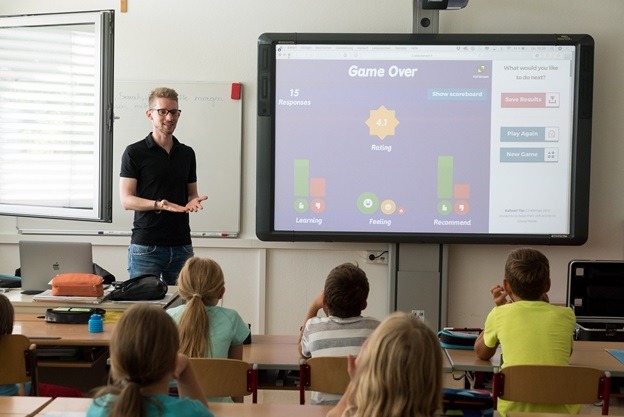A good teacher has a significant impact on their student’s life. If you genuinely try to improve yourself as a teacher, you will positively influence hundreds of students throughout your career. Being a good teacher is thus a gratifying experience.
However, before you learn to become your student’s favorite instructor, you must first understand and accept some ground realities. For starters, your teaching style and methodology is not a one fit for all dress, and it won’t be suitable for every student. Keeping that in mind, you won’t be everyone’s favorite because that standard is unrealistic. However, appreciated instructors understand the subject they teach and their students. Some tips that can help you become your class’s favorite instructor are:
1. Prepare for your class
No matter what grade you teach, entering the classroom with a plan in mind is necessary. Before the class, prepare a lesson plan and establish measurable goals that will determine whether you have achieved your lesson objectives or not at the end of the course. Moreover, structure the time available for class properly. If there are learning aids available, use them to your advantage and deliver an engaging lecture. Find ways to make the coursework more memorable for students. And measure the learning outcomes according to what students have learned from the course.
If you are unsure about creating an effective lesson plan, enroll in an online degree in education that focuses on curriculum design and instruction. You can create a flexible learning schedule around your work routine to skill up and hone your teaching skills.
2. Be energetic
You can’t expect your students to be energetic and enthusiastic about learning if you aren’t enthusiastic about teaching them. Students can always tell if the teacher is bored or apathetic. Therefore, keep in mind that your energy levels and attitude in class will reflect on the student’s mood. So if you want your class to be energetic, bring the energy in the room up a few notches.
You can include activities in your lesson plan that are fun and educational to keep students engaged. Moreover, you can also conduct activities such as role-playing or invite them to debates on trending issues. Give them something to be excited about, and your students will love to study in your class.
3. Get creative
There is no single method of teaching that works for every student. Some students thrive in the traditional lecture setting, whereas others learn better in practical learning models. Therefore, you must teach the course material using various methods. More students will engage and perform better. So get creative with your teaching methods. For example, you can include debates, audio-video tools, activities, games, role-playing, etc., to make your lessons more interactive and educational.
4. Be patient
Understand that your students are learning numerous subjects simultaneously. Therefore, they may not always be able to give you undivided attention. Their brains are absorbing loads of information daily and developing as well. They are doing their best to make sense of the world around them. Therefore, you need to be patient when you teach. Being grumpy will make them dislike you even more.
5. Show them that you care
Students don’t expect anyone who is not their friends or family to care for them. So if you show them that you care for their well-being, it will change their opinion about you. Therefore, you must pay attention to what your students say and do. Pay attention to their conversations and watch out for any signs of struggle. And if you find a student needs help, help them discreetly so that it remains between you and them.
6. Reflect and learn
You can’t be perfect, and you can’t be everyone’s favorite. However, you can reflect on the situation and learn some lessons from it. Therefore, take a few minutes to yourself after every class, and note down how it proceeds. Then, consider different tactics to tackle the problems that arose during the previous lectures and plan how to improve your lessons in the future.
Conclusion
As time goes on, you will find yourself learning from your shortcomings and student responses. You may not start as a brilliant instructor, but your skills will sharpen over time, and you will learn how to adapt to any challenge. Over time, you will learn the best ways to deal with your students and the most effective strategies for teaching your subject. However, you must keep in mind that kindness, empathy, patience, and consideration will go a long way throughout this process. Students respect and admire a teacher who will treat them with respect and help them unleash their hidden potential.

